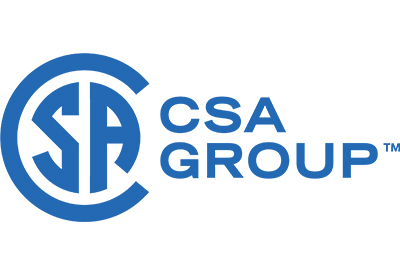Introducing the Recipients of the 2021 CSA Group Graduate Scholarship

September 16, 2021
In 2019, CSA Group launched its Graduate Scholarship Program to support students enrolled in Master’s programs whose research is related to standards. CSA is proud to introduce the recipients of the 2021 Scholarship and their projects:
Olakunle Betiku, University of Waterloo
Olakunle will study welding techniques for press hardened steel used in the manufacturing of crash-resistant auto body structures. Through his research, Olakunle wants to contribute to a better understanding of the metallurgical transformations occurring during welding to improve mechanical properties of joints. Olakunle’s work can also help enhance existing welding standards.
Katerina Disimino, York University
According to research, a lack of access to disability-specific information is one of the barriers to physical activity participation among people with disabilities. Katerina’s goal is to identify existing strategies for developing and disseminating inclusive messages promoting physical activity. Her work will help inform the establishment, implementation, and monitoring of inclusive physical activity messaging standards.
Omid Vakili, Simon Fraser University
Omid is pursuing research in the area of injury biomechanics in ice hockey. Head impacts to the shielding (or glass) account for up to 37% of concussions in hockey. Omid’s research seeks to improve our understanding of the dynamics of head-to-shielding impacts and how head impact severity is affected by modifications to the effective stiffness and mass of the shielding. Ultimately, Omid’s findings can help promote safer environments to protect the brain health of ice hockey players. His work will therefore help advance CSA standards for hockey protective equipment.
Ana Karen Espinosa Becerra, Ontario Tech University
Ana’s research will focus on studying adults’ perception of non-native language speaking children and adolescents testifying in legal contexts via a language interpreter. As no standards for impartial practices in interpreter-mediated interviews with child witnesses speaking a non-native language currently exist, Ana’s work will help develop new knowledge in this emerging area and potentially affect the community’s safety and mental health.
Leah Hicks, University of Manitoba
The loss of thick, multi-year sea ice in Canada’s Arctic Ocean due to climate change opens the region to more shipping traffic. With a growing number of ships, the probability of an oil or diesel spill is increasing. This led Leah to compare the capabilities of C- and L-band scatterometers, microwave radar sensors for detection and identification of crude oil and diesel fuel in Arctic marine environments. Her work will help improve the remote detection methods of oil and diesel fuel spills in the Arctic ocean and can contribute to developing CSA Group’s readiness and response standards.
Gianina Giacosa Massa, Dalhousie University
Pulp and paper manufacturing is one of the major industrial air polluters. However, there are only a few studies that quantify the spectrum of these emissions. Considering the local meteorology and using publicly available data, Gianina will study air releases from the currently closed pulp mill in Pictou County, Nova Scotia, and air pollutant emissions near the facility. The data will help her assess the effectiveness of environmental mitigation and management strategies to improve air quality implemented during the mill’s operation. Her work will also help provide a general view on how this industry complies with regulations in Atlantic Canada.
Dilusha Kankanamge, University of Windsor
With a higher frequency of extreme weather events, enhancing flood resiliency of infrastructure is one of Canada’s top priorities. Dilusha wants to use Building Information Modelling (BIM) as an effective tool to analyze whether a building design adheres to CSA Group and ISO guidelines for flood risk resilience. His BIM-based rule-checking algorithm can help promote the use of the CSA Groups’ guidelines and assist users in achieving compliance with their requirements.
Teddy Okolo, University of Saskatchewan
The recent global pandemic has driven the need to reduce contaminants in buildings by increasing the ventilation rate of fresh air. Teddy’s research focuses on fixed-bed regenerators (FBR), which precondition the supply air to reduce energy consumption. His goal is to develop a method for selecting desiccants that can help integrate desiccant-coated FBRs in future CSA Group standards for heat/energy recovery ventilators.
Anne Charpentier-Hébert, Université du Québec à Montréal (UQAM)
In addition to assessment and symptom management tasks, nurses delivering home-based palliative care services must focus on the quality of the patient and family experiences and their spiritual needs. Anne is interested in exploring the competencies necessary for comprehensive interpersonal care, including the spiritual dimension. Her research aims at establishing the nursing competency standards required for the delivery of palliative care services in patients’ homes.
John Akana, University of Windsor
Aging infrastructure presents a challenge for many municipalities. Often operating with limited resources, decision-makers strive to increase efficiency in sustaining assets supporting their communities. John aims to develop a methodological framework for integrated infrastructure management defined in ISO standards for asset management and information about buildings and civil engineering works.











![Guide to the Canadian Electrical Code, Part 1[i], 26th Edition– A Road Map: Section 56](https://electricalindustry.ca/wp-content/uploads/2022/11/Guide-CE-Code-2.png)



